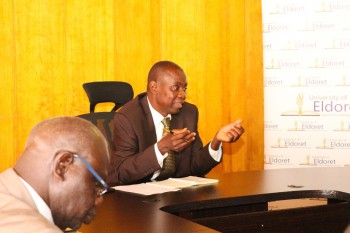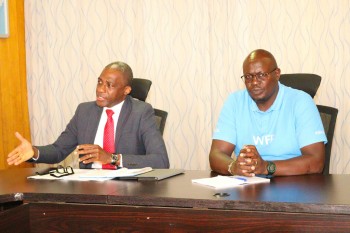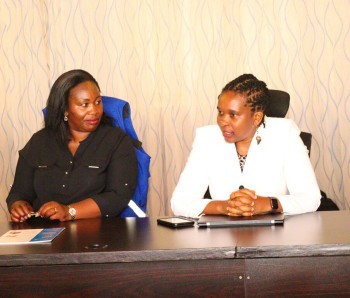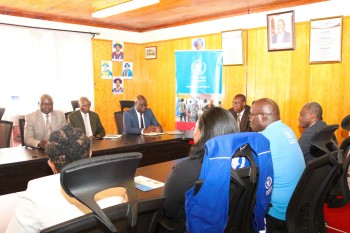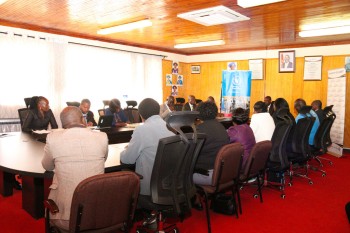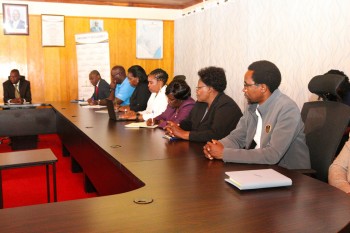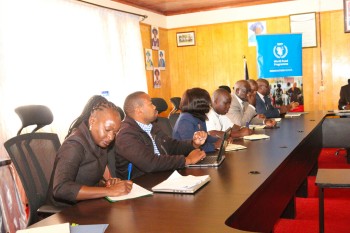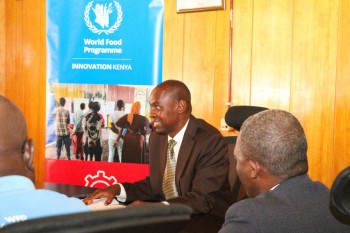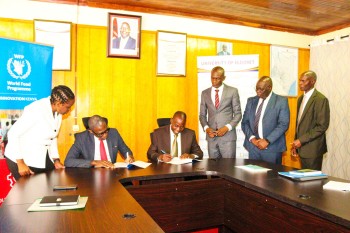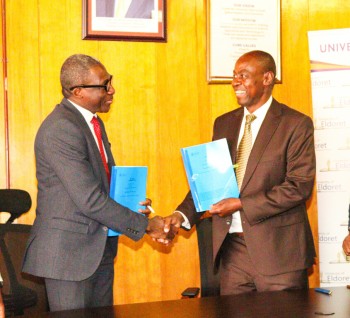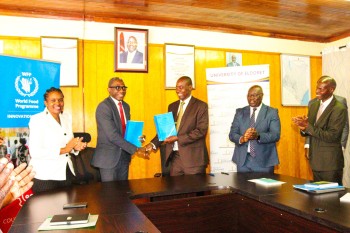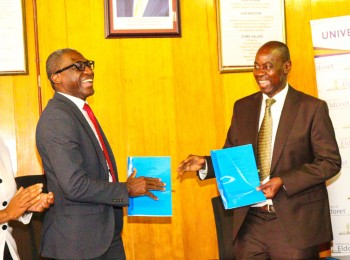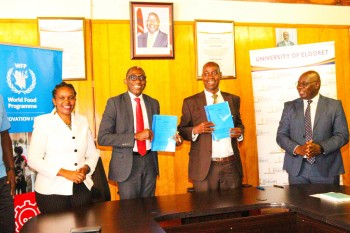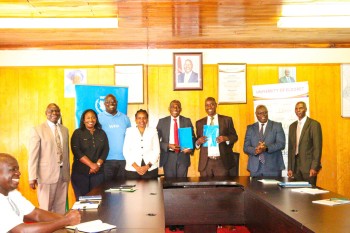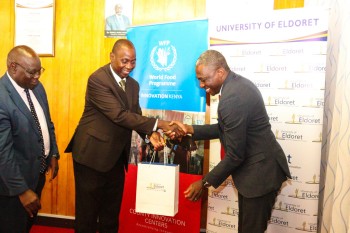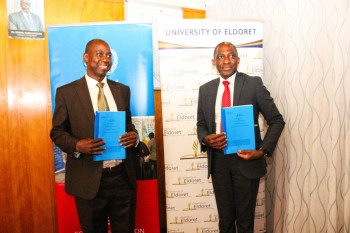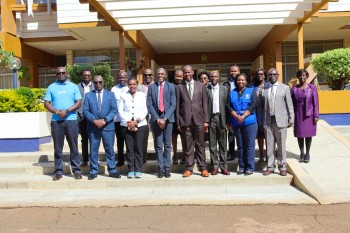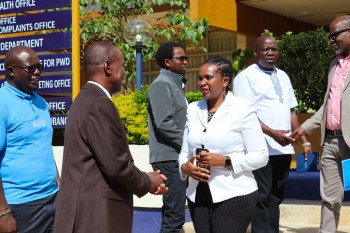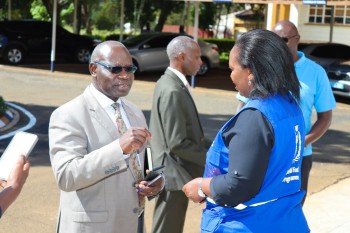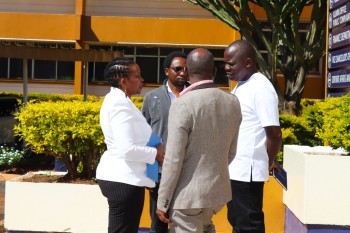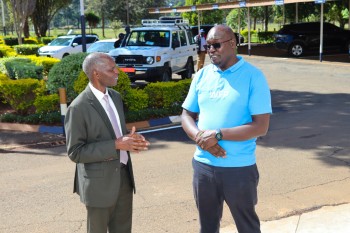The University of Eldoret has formally embarked on a strategic collaboration with the World Food Programme (WFP) through the signing of a Letter of Intent (LOI), designed to fortify and advance agriculture, enhance food security, and foster community development in Kenya and the surrounding region. This significant occasion took place on June 10th, 2025, at the University’s main campus.
Speaking at the signing ceremony, Prof. Godfrey Netondo, the Ag. Vice-Chancellor, underscored the significance of academic institutions forging alliances with development agencies to cultivate impact-oriented programs. “This collaboration with WFP is not merely timely but imperative. It aligns with our mission to establish ourselves as a preeminent university in the realms of knowledge generation and dissemination for societal advancement, particularly in the domain of sustainable agriculture,” he articulated. He further noted that the LOI will unveil new prospects to bolster research and outreach initiatives in climate-smart food systems, as well as in environmental and social impact assessments.
The WFP Deputy Country Director Mr. Baimankay Sankoh, resonated with these sentiments, articulating WFP’s unwavering dedication to collaborating closely with the University to translate research and innovation into tangible solutions for the transformation of food systems. “By working together with institutions like the University of Eldoret, we can co-create interventions that empower communities, particularly women and youth, to become catalysts of change within their own agricultural value chains,” he remarked. He emphasized that the collaboration with UoE will provide an opportunity to enhance the research and innovation activities within the academia sphere.
The partnership will enhance technical capacity, research capabilities, innovative potential, enabling the University, in collaboration with the WFP on-the-ground presence, to save lives and serve as a platform for advancing research through shared methodologies in human-centred design and cutting-edge technology, thereby capitalizing on the intrinsic value of technological advancements. The LOI establishes a foundation for collaborative research initiatives, capacity-building endeavors, internship opportunities for students, incubation programs, and the execution of community-oriented agricultural interventions.
The World Food Programme delegation was led by Mr. Baimankay Sankoh, the Deputy Country Director. He was accompanied by Mr. Charles Sangok, Head of Area Office Central, Ms. Sylvia Kezengwa, Innovation Manager and Ms. Kezia Kironji, Market Systems.
In attendance at the signing ceremony were Prof. Philip Raburu (Deputy Vice-Chancellor, PRE), Prof. Wilson Ng’etich (Deputy Vice-Chancellor, AF), Prof. Julius Ochuodho (Director, Resource Mobilization and Strategic Initiatives), Mr. Stephen Anditi (Senior Legal Officer), Dr. Javan Were, Dr. George Ariya, Dr. Heka Kamau, Dr. Emily Chemoiya, Ms. Cynthia Chebii and Dr. Charlotte Serem.
As part of the preparatory engagements leading to the formalization of the LOI, a joint field visit was conducted on June 9, 2025, to the Kapseret Women Farmers Group in Uasin Gishu County. The visit provided an opportunity for both the University of Eldoret and WFP representatives to interact directly with community members, acquiring firsthand insights into their achievements, challenges, and aspirations. The Kapseret group, composed of enterprising women smallholder farmers, has made significant progress in adopting sustainable agricultural practices and enhancing local food systems through the cultivation of African leafy vegetables (kienyeji), exemplifying the transformative potential inherent in grassroots agricultural initiatives, a project administered through the Outreach Centre.
During the visit, the stakeholders engaged in meaningful dialogue with the women farmers, deliberating on an array topics encompassing access to agricultural inputs and markets, climate resilience, extension services, and the pivotal role of women in enhancing food security. The insights gleaned from this visit will shape the implementation strategies of the partnership, ensuring that interventions are meticulously tailored to address the actual needs of farming communities, particularly the acute water scarcity that emerged as their predominant challenge.
The LOI establishes a foundation for collaborative research endeavors, capacity-building initiatives, internship opportunities for students, incubation and the execution of community-based agricultural interventions.

